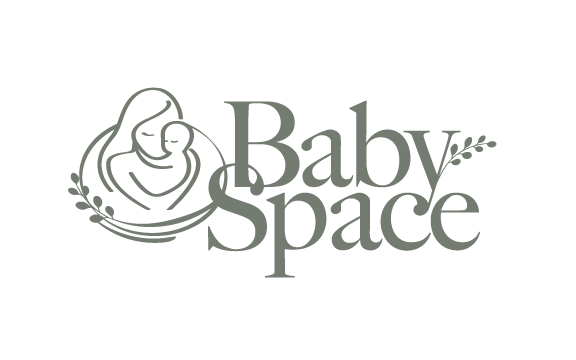Hold your Baby during Bottle Feeds
Although social media often shows images of infants holding their own bottle, being fed in a car seat, or lying next to their parent on the couch, these moments can give a misleading picture of optimal feeding practices. While they may seem convenient or cute, feeding an infant in these ways can miss key opportunities for bonding and development.
For your baby’s emotional, physical, and cognitive well-being, it’s much better to hold your infant in your arms during bottle feeds. This simple act fosters secure attachment, promotes emotional regulation, and supports healthy sensory and social development which are critical foundations that begin with close, nurturing contact. According to principles of infant mental health, holding a baby in one’s arms during a bottle feeding is crucial for several developmental and emotional reasons discussed below.
Bonding and Attachment
When a parent holds a baby during feeding, it fosters a secure emotional bond. Being physically close helps the infant feel safe, loved, and connected. The eye contact, gentle touch, and presence of the caregiver create a sense of security, which is foundational for a secure attachment. The warmth and comfort of being held enhances the baby’s sense of belonging, reinforcing trust in the caregiver. Secure attachment, in turn, influences a child’s social, emotional, and cognitive development throughout life. Over time, this early bonding also helps the child develop positive relationships with others, setting the stage for future emotional well-being.
Emotional Regulation
Feeding while being held helps infants regulate their emotions and physiological responses. Being close to a caregiver's body (hearing their heartbeat, feeling their warmth, etc.) can soothe and calm a distressed baby. This co-regulation of emotions is essential in the early months, as infants rely on caregivers to help them navigate overwhelming feelings. Consistent, nurturing contact teaches babies how to manage their own stress and self-soothe over time. This process of co-regulation lays the foundation for babies to develop emotional resilience as they grow older. Additionally, holding a baby during feeding provides the caregiver an opportunity to better attune to the baby's cues, promoting sensitive, responsive care.
Sensory Stimulation and Development
The feeding position engages a baby’s senses: they see their caregiver’s face, hear their voice, smell their scent, and feel the touch of their skin. These sensory experiences are not just comforting; they are vital for brain development. The baby’s brain is rapidly forming connections, and these early interactions shape neural pathways linked to social and emotional development. By being held during feeding, babies are exposed to multi-sensory stimulation that enhances visual tracking, auditory processing, and tactile awareness. This intimate interaction also encourages the baby to explore their environment through the caregiver’s facial expressions and voice tones, further supporting cognitive and social skills. Repeated sensory engagement during feeding also strengthens the baby’s attachment to their caregiver, creating a lasting bond.
Trust and Safety
Feeding while held communicates safety and trust. When a baby is consistently held during feeding, they learn to associate nourishment with positive emotions and security. This consistent caregiving builds a foundation of trust, teaching the child that their needs will be met reliably. Over time, this trust nurtures the baby’s confidence in their environment and in their relationships with others. A baby who feels safe and secure in these moments will be more likely to explore the world with confidence as they grow. This trust also fosters a sense of predictability in their daily routines, which is crucial for a child’s emotional stability and well-being.
Preventing Potential Feeding Issues
Holding a baby during feeding also promotes a relaxed, controlled feeding environment, reducing the likelihood of choking, overfeeding, or issues with swallowing. Feeding in a reclined position or propped up can also increase the risk of ear infections or cause the baby to feel overwhelmed, which can interfere with developing a healthy relationship with feeding. When held upright, babies are better positioned to manage the flow of milk, reducing the chance of aspiration. This positioning also encourages better digestion, minimizing issues like reflux or gas. Furthermore, a calm, nurturing feeding environment helps babies associate feeding with comfort and satisfaction, fostering a positive long-term relationship with food.
Overall, holding a baby during feeding is not just about nutrition, it’s a multisensory, emotional experience that supports the baby’s overall sense of well-being and helps lay the groundwork for healthy attachment and future relational patterns. It fosters a deep, trusting relationship between the baby and caregiver, supports emotional and sensory development, and provides critical emotional regulation that will benefit the baby throughout life. This simple act of holding during feeding can have lifelong impacts on a child’s emotional and social health.
BabySpace Coachella Valley
The playroom at BabySpace Coachella Valley
Becoming a parent is a profound and life-altering experience, but it comes with its fair share of unspoken challenges. Meeting with other parents and exploring together what you are envisioning life could look like with your infant and toddler is an invaluable piece of new parenthood. By sharing experiences with others in a place like a BabySpace Coachella Valley Mommy and Me group, parents can find solace in the shared journey of raising the next generation, embracing both the joys and the trials that come with it.
Serving the Coachella Valley and surrounding areas, including: Palm Springs, Cathedral City, Rancho Mirage, Indian Wells, Thousand Palms, Palm Desert, La Quinta, Indio, Bermuda Dunes, Coachella, Thermal, Mecca, Desert Hot Springs, Yucca Valley, and Joshua Tree.
Therapist Palm Desert, Therapist Palm Springs, Postpartum Therapist Palm Desert, Postpartum Therapist Palm Springs, Postpartum Depression Palm Desert, Postpartum Depression Palm Springs, Pregnancy Therapist, mom support groups near me, mommy and me near me, moms support group near me, new mothers groups
#mommyandme #newmomlife #mommylife #firsttimemom #FTM #newmom #newmommy #motherhood #parenthood #postpartum #mommyhood #groupsupport #palmdesert #palmsprings #laquinta #coachellavalley #coachellavalleylife #coachellavalleyevents #SAHM #SAHMlife #wfh #wfhlife #wfhmom #wfhmomlife #momlife #mommyanddaughter #mommyandson #girlmom #boymom




